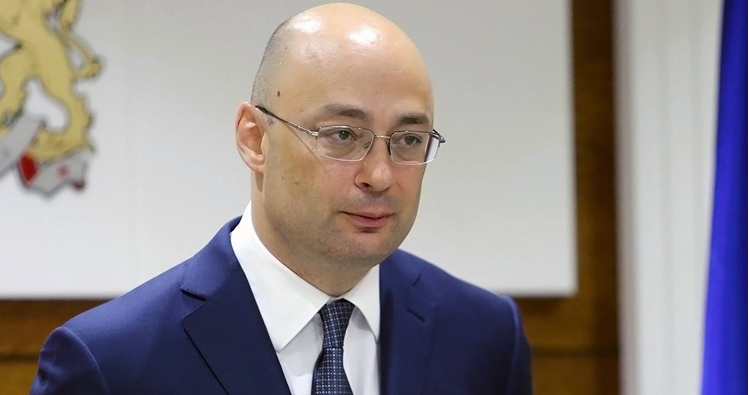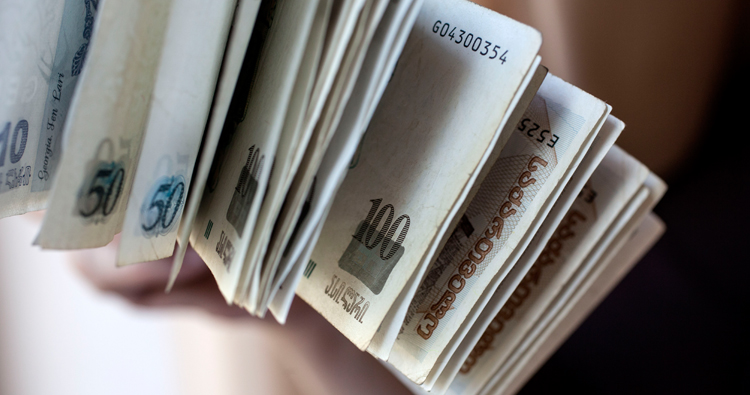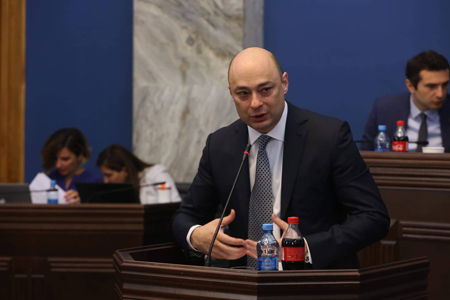Economy Minister: Georgian economy to grow 5% in 2019

Economy Minister said that Georgia’s economic performance is much better than that of other countries in the region. Photo:Ministry of Economy.
A stable national currency, increasing investments and five per cent growth await Georgia in 2019, Economy Minister Giorgi Kobulia said while addressing parliament today.
Kobulia said that Georgia’s economic performance is much better than that of other countries in the region.
The International Monetary Fund forecast that Georgia will be the leader country in the region over the next five years, until 2023. Our forecast is 5% [growth]”, said Kobulia.
Despite sustainable economic development, Georgia still needs higher rates of overcoming poverty, said Kobulia.
Although the current statistic shows that the poverty level decreased by 10% compared to 2013, the fight against poverty remains one of our biggest challenges and main priorities… Fighting against poverty is the parameter we are continuously observing. We still have a 20% poverty rate and we have to overcome that. The rate of poverty reduction was low during the last two years and we need much higher rates”, Kobulia said.
Kobulia also said that the unemployment rate is also decreasing in Georgia but at low rates.
Like poverty reduction rates, the unemployment reduction rate is low. While in 2015 the unemployment rate equalled 15%, in 2016 it equaled 14% and in 2017 – 13.9%. This shows a decline, but it is not enough”, said Kobulia.
Kobulia sorted out those segments of the society which represent the country’s labour force.
Out of 3.7 million people only 2 million people can work, so they are our labour force. The rest are children under 15 age and people of retirement age. There are also housewives who don’t work. And there is another category of people who say they do not want to work. Involving those people in our economy is our goal”, Kobulia said.
Kobulia also explained the reasons for high inflation rates in 2017 was caused by an increase of excise taxes on alcoholic beverages, tobacco and fuel and in 2018 the “situation is comfortable”, he said.
As for the reasons of reduction of foreign direct investments in 2018, Kobulia said that it was the completion of transfer of funds for the expansion of the South Caucasus pipeline.
We have systemic problems with both Georgian and foreign investors who are facing bureaucracy-related challenges, and they face problems related to different issues that are absolutely unacceptable. We have to create the strongest service at the Ministry of Economy to work and attract investors”, said Kobulia.
Kobulia also said that Georgia needs investments generated from savings.
While talking about the challenges Georgia faces Kobulia also mentioned the external trade of the country. He accented the importance of the balanced export and import and said that without it Georgian economy will always be vulnerable to external shocks.
Kobulia said that a huge deficit of electricity is expected in Georgia and to balance this deficit construction of new power plants is needed. Kobulia said that his cabinet has specific plans in this regard.
We are building Shuakhevi HPP and will have to build Namakhvani HPP which will become operational in 2022. We are studding the Nenskra HPP. Besides, we will build Oni 2 HP, Khudoni HPP and Tskhenistskhali HPP. Besides these large HPPs we plan to develop small ones as well: 117 projects are at the stage of technical and economic research, 26 – at the stage of getting construction license and 22 – under construction”, said Kobulia.
In terms of electricity generation, Georgia is the wind rather than the sun country, Kobulia believes.
We have ambitious plans regarding wind. We are launching the construction of wind power plants from 2020. We are studying the sun potential. In terms of electricity generation, Georgia is the wind rather than the sun country”, Kobulia said.
 Tweet
Tweet  Share
Share




/employment.jpg)